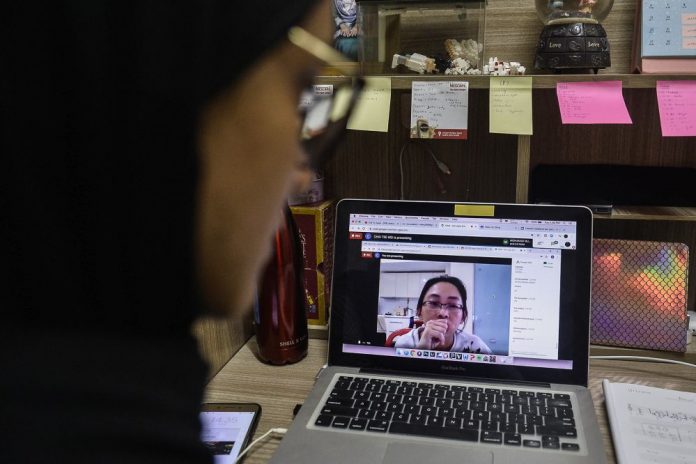.JPG)
KUALA LUMPUR, Dec 5 ― The allegation by netizens on the social media of teachers “makan gaji buta” (getting salary for not doing anything) following implementation of the movement control order (MCO) and the conditional movement control order (CMCO) as the schools are closed is indeed too much to swallow.
Apart from being accused of getting paid for not doing anything, there are also suggestions by netizens for the government to involve teachers as frontline workers, such as to man roadblocks.
The accusation that disputed the professionalism of the educators certainly hurt the feeling of the teachers, where there are about 420,000 of them in the country.
The fact is, there is no such thing as the teachers getting paid for not doing anything, instead they are being faced with new challenges in having to carry out their responsibility of educating through home teaching and learning (PdPDR) sessions.
A survey involving 1,742 teachers from government and private primary and secondary schools proved the allegation of “makan gaji buta” made against teachers is inaccurate.
In a survey conducted by the Faculty of Education, Universiti Kebangsaan Malaysia (UKM) last November, 85 per cent of the teachers stated that they spend between one to four hours daily to carry out PdPDR activities, with the remaining 15 per cent spend more than four hours a day doing so.
On the teaching methods used, 37 per cent of them conducted the lessons online, 16 per cent offline, 45 per cent online and offline, while the rest are at community centres to distribute and collect notes, exercises and assignments given to students.
Associate Prof Dr Azlin Norhaini Mansor, who headed the survey, said the findings showed that majority of the teachers performed their actual task during the CMO and CMCO according to the timetable given to them.
“There may be questions as to why majority of the teachers conduct the lesson less than four hours a day. Based on the explanation given by the teachers is that their actual task is not only teaching, as there are other task that they have to do that is related to administrative work.
“These include checking students, assignments, providing teaching aids, recording the attendance data and other tasks as instructed by their respective school principal or headmaster, as well as the District Education Office,” she told Bernama here.
In the survey, she said the teachers also shared the challenges and constraints of conducting PdPDR or home-based learning (HBL).
She said 80 percent of them stated that their main challenge is to ensure the presence of students during the class, followed by the challenges in the students adapting to the teaching methods, their needs and readiness, apart from ensuring that students can focus so that they understand and enjoy the lesson.
“Besides that, some 70 to 80 per cent of them stated the problem of internet stability, the usability of teaching devices such as computers, telephones, tablets, student learning space and parental support.
“Other challenges that threaten the credibility of teachers, include Astro, Netflix, video games and others that can be accessed at any time for free and are more exciting for school children, especially teenagers,” she said, adding that a complete report on the survey is expected to be ready next month.
She said in terms of education, it is not appropriate to blame the teachers only as there are many things that need to be taken into account, including mental and physical health of the students having been “confined” to their homes due to the MCO and the CMCO, uncomfortable space and residence, family conflicts and other problems that could disrupt the students, learning.
Meanwhile, Universiti Pendidikan Sultan Idris (UPSI) vice-chancellor Prof Datuk Dr Mohammad Shatar Sabran said that the negative sentiments and accusations by netizens against teachers is mainly because they do not understand the duties and responsibilities of teachers.
He said it is wrong to think that teachers are paid salary based on their presence in classrooms, because there are many challenges and burdens shouldered by teachers, especially during the CMO and CMCO, in ensuring students continue their learning at home.
These include preparing teaching notes, documents and so on, before teachers can start with their online or offline teaching and learning process, he said.
“Can we say the firefighters are getting their salary for not doing anything because they are not outting out fire, or can we say the same to the police because they do not catch thieves or criminals.
“So, even though schools are closed, there are class or lectures, it does not mean that teachers only eat, and sleep. They still work as usual, especially to prepare notes, which they share with their students,” he added. ― Bernama


